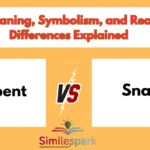Ever seen someone write “car scrape yard” instead of “car scrap yard”? You’re not alone. Many English learners — and even native speakers — confuse scrap and scrape because they look and sound almost the same. Yet, they carry entirely different meanings.
This guide breaks down the confusion once and for all. You’ll discover each word’s meaning, origin, and usage, with real-world examples, tables, and visuals that make
it easy to remember. By the end, you’ll know exactly when to use scrap and when to use scrape — and never mix them again.
Core Definitions: Scrap vs Scrape
The key to mastering these two words lies in understanding their core meanings and usage contexts. Let’s break it down.
What Does “Scrap” Mean?
Scrap can be both a noun and a verb, but its meanings revolve around discarding, rejecting, or small leftover pieces.
As a noun:
- It means a small piece or fragment of something larger. “She used a scrap of paper to jot down her thoughts.”
- It can also refer to discarded metal or materials. “The old machine was sold for scrap metal.”
As a verb:
- It means to discard or eliminate something no longer needed. “They decided to scrap the old plan and start fresh.”
Key takeaway: Scrap means to throw away, abandon, or repurpose something.
Synonyms: discard, abandon, ditch, reject.
What Does “Scrape” Mean?
Scrape focuses on friction, rubbing, or removing a surface layer. It can also describe a difficult situation.
As a noun:
- A mark or abrasion caused by rubbing something rough. “He had a scrape on his knee after falling off his bike.”
As a verb:
- To rub or scratch a surface, often causing damage. “The car scraped against the wall.”
- To remove or collect something using friction. “She scraped the ice off the windshield.”
Key takeaway: Scrape means to rub, scratch, or remove a surface layer.
Synonyms: scratch, rub, graze, scuff.
Quick Comparison Table
| Aspect | Scrap | Scrape |
|---|---|---|
| Part of Speech | Noun / Verb | Noun / Verb |
| Meaning | To discard or small leftover piece | To rub, scratch, or remove surface |
| Example (Noun) | “The mechanic sold metal scrap.” | “He got a scrape on his arm.” |
| Example (Verb) | “They scrapped the old design.” | “She scraped the paint off the wall.” |
| Common Collocations | scrap metal, scrap yard, scrap paper | scrape off, scrape together, scrape through |
| Memory Tip | Scrap = Stop or throw away | Scrape = Scratch or rub |
Mnemonic Trick:
“Scrape leaves marks, but scrap leaves none.”
Linguistic Roots: Etymology and Evolution
Understanding where these words came from helps you remember their meanings.
The Origin of “Scrap”
- Derived from the Old Norse word “skrap”, meaning “small piece.”
- Historically linked to bits and fragments, especially of metal or fabric.
- By the 19th century, it also evolved to mean abandoning or discarding something (e.g., “scrapping a plan”).
Today, it’s common in both industry (scrap metal) and figurative language (“scrap an idea”).
The Origin of “Scrape”
- Comes from the Middle English “scrapen”, meaning “to scratch or rub.”
- Related to Old Norse “skrapa”, with the same meaning.
- The term always involved contact and friction — from scraping tools to scraping knees.
Over time, it took on metaphorical meanings too, such as:
- “To scrape by” → barely manage financially.
- “To scrape together” → gather something with difficulty.
Visualizing the Actions: What Do They Represent?
Picture this:
- Scrap — You’re tossing an old car into a junkyard. The action ends something.
- Scrape — You accidentally rub your car against a pole. The action causes damage but doesn’t destroy the car.
Here’s a simple way to visualize it:
| Action | Symbolic Meaning | Example |
|---|---|---|
| Scrap | Ending or discarding | “They scrapped the broken computer.” |
| Scrape | Friction or damage | “He scraped his knee on the pavement.” |
Infographic idea:
A two-part image — one showing a car being crushed in a scrap yard (scrap), the other showing a car with a scratch on its door (scrape).
Common Misconceptions and Real-World Mistakes
Even native English speakers often mix up scrap and scrape because:
- The words look similar.
- They sound nearly identical in some accents.
- Autocorrect or predictive text changes one to the other.
Frequent errors:
- ❌ “Car scrape yard” (should be scrap yard)
- ❌ “Scrap your knee” (should be scrape your knee)
How to avoid it:
- Remember: if it involves throwing away → it’s scrap.
- If it involves rubbing or friction → it’s scrape.
Pro Tip: Read your sentence aloud. If it describes physical contact or injury, it’s almost always scrape.
Real-World Applications: When and How to Use Each Word
Let’s explore where you’ll most often see scrap and scrape used.
Scrap in Context
Industries:
- Recycling: “The factory collects scrap metal to recycle steel.”
- Automotive: “Old vehicles are scrapped for parts.”
- Business/Project Management: “They scrapped the old policy to make room for a new one.”
Idioms with ‘Scrap’:
- “Scrap the plan” → Cancel or abandon it.
- “Fight tooth and nail” → Sometimes said “a real scrap” (informal for a fight).
Example Sentences:
- “The government scrapped outdated regulations.”
- “They earned profit by selling copper scrap.”
Scrape in Context
Physical Uses:
- “He scraped his arm on the fence.”
- “Scrape the frost off your windshield before driving.”
Figurative Uses:
- “They managed to scrape together enough money for rent.”
- “She scraped by with a passing grade.”
Common Phrases:
- Scrape through: barely succeed.
- Scrape off: remove by rubbing.
- Scrape by: survive with minimal resources.
Example Sentences:
- “He scraped his shoes clean before entering.”
- “They scraped through the exam, just barely passing.”
Case Studies: How They Differ in Action
Case Study 1: Construction & Industry Example
In construction, both words may appear — but their meanings are distinct.
Scenario:
A demolition crew plans to dismantle an old building.
- If they scrap the building → they demolish and discard it.
- If they scrape the building → they remove surface materials like paint or plaster.
Industry Application Table:
| Term | Meaning | Example |
|---|---|---|
| Scrap | Dispose of or recycle | “They scrapped the damaged metal beams.” |
| Scrape | Remove surface | “Workers scraped the paint off the walls.” |
Case Study 2: Everyday Life Example
Scenario 1: Personal Situation
“I scrapped my weekend plans after I got sick.”
Means: You cancelled your plans.
Scenario 2: Accident
“I scraped my knee while jogging.”
Means: You injured the surface of your skin.
Scenario 3: Finance
“We scraped together enough for a vacation.”
Means: You gathered funds with difficulty.
The Role of Technology: Autocorrect and AI Grammar Tools
Why These Mistakes Happen
Modern autocorrect tools rely on predictive text algorithms that often substitute one familiar word for another. Since “scrap” and “scrape” are phonetically similar, digital tools misinterpret them.
For example:
- Typing scrape yard → autocorrect changes it to scrap yard.
- Typing scrap your knee → autocorrect may suggest scrape your knee.
How to Prevent These Errors
- Add both words to your custom dictionary for accuracy.
- Read in context — before hitting send, reread sentences aloud.
- Use context-aware writing assistants like Grammarly or Hemingway Editor.
- Learn the visual difference — “scrap” ends with a p, like “dump.” “Scrape” ends with an e, like “erase.”
Practical Tips to Remember the Difference
Here are easy, memorable tricks to lock them in your mind:
- Scrap = Stop or Throw away
- Scrape = Scratch or Rub
Memory Tips:
- If it involves friction, it’s scrape.
- If it involves ending or discarding, it’s scrap.
- Visual Cue:
- “Scrap” → picture a junkyard.
- “Scrape” → imagine a scratch on your car.
Quick Mnemonics:
- “Scrape leaves marks, scrap leaves none.”
- “If you scrap it, it’s gone. If you scrape it, it’s still there but hurt.”
Mini Quiz:
✅ Which is correct?
- “He ___ his car against a wall.” → Scraped
- “The old computers were ___.” → Scrapped
FAQs
What does “scrap” mean as a verb?
It means to discard or cancel something. For example, “The company scrapped its old website” means they shut it down or stopped using it.
What does “scrape” mean in daily usage?
It refers to rubbing, scratching, or removing something. “She scraped her knee” or “He scraped off the mud.”
Can “scrap” and “scrape” be used interchangeably?
No. Scrap is about throwing away, while scrape involves surface contact or friction. They’re never interchangeable in proper English.
How can I avoid confusing “scrap” with “scrape”?
Think of scrap as stop and scrape as scratch. Read your sentence out loud and imagine the action—if there’s contact or damage, use scrape.
What are common mistakes with “scrap” and “scrape”?
People often type scrape yard instead of scrap yard or scrap your knee instead of scrape your knee. Always double-check the context before writing.
Conclusion: A Simple Rule to End the Confusion
Here’s the golden rule to remember:
Scrap means to throw away. Scrape means to rub or scratch.
If something is gone, you’ve scrapped it.
If something is damaged but still there, you’ve scraped it.
So next time your car gets a little too close to that parking pillar, don’t say you scrapped it — you just scraped it!










